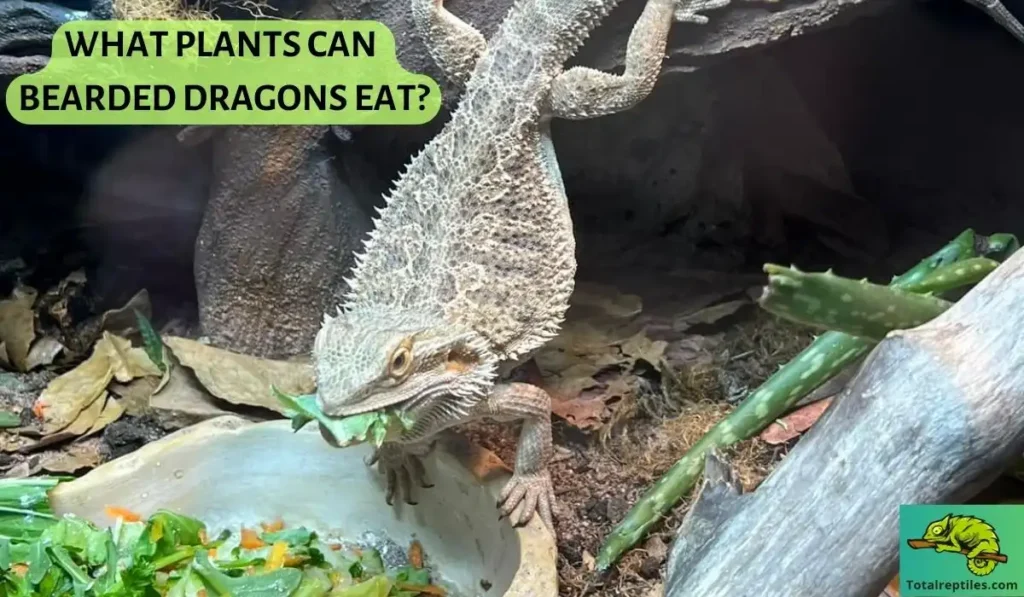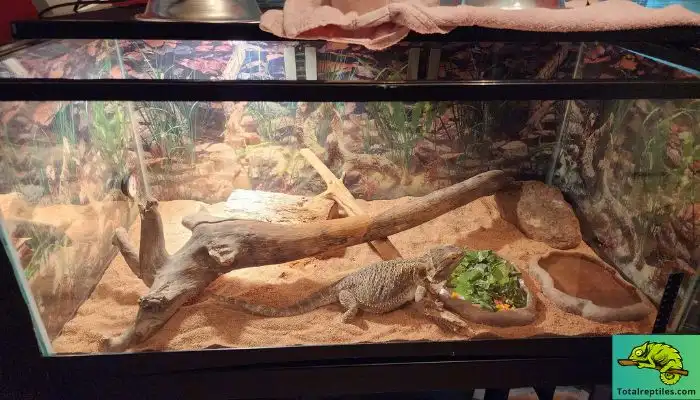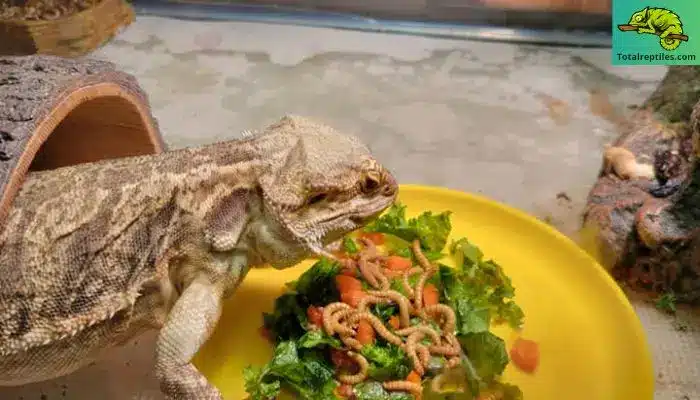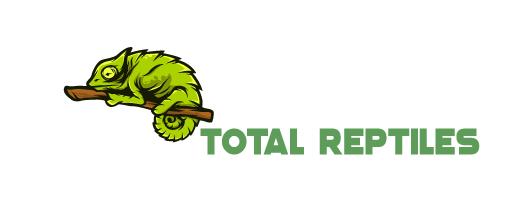Bearded dragons can eat various safe plants, including Kale, dandelion greens, and Squash Blossoms. Other options include Turnip Greens, Endive, edible flowers like rose petals, and hibiscus flowers. It would help if you were cautious regarding their diet.
Bearded Dragons are known for their distinctive appearance and endearing personalities. They rely on a balanced and varied diet to thrive in captivity. Central to their well-being is a careful selection of plants that complement them. But do you need clarification about what plants bearded dragons can eat?
Join me on this botanical journey to ensure your scaly friends receive the best nourishment their reptilian hearts desire, as this article will describe the safest plants for them.

12 Safe Bearded Dragon Plants – Table With Details
Regarding plant matter, there are numerous safe options to include in Bearded Dragons’ meals. Here are ten safe plants that bearded dragons can enjoy –
| Plant Name | Nutrients | Benefits | Feeding Frequency |
| Kale | Vitamins A, C, and K, High in Oxalates | Nutritious but feed in moderation due to high oxalate content | Occasional |
| Dandelion Greens | Calcium, Vitamins A, C, and others | Safe and nutritious, ensure pesticide-free sourcing | Occasional |
| Hibiscus Flowers | Natural Antioxidants | An occasional treat, visually appealing and provides enrichment | Occasional |
| Squash Blossoms | Various nutrients | Unique and safe addition, ensure they’re from edible squash plants and pesticide-free | Occasional |
| Turnip Greens | Vitamins A, C, K, Calcium, Fiber | Essential nutrients for skin, vision, bones, and digestion | Regular |
| Endive | Vitamins A, K, Low in Oxalates, Fiber | Safe and mild flavor supports the immune system and aids digestion | Regular |
| Bok Choy | Vitamins A, C, K, Calcium, Potassium | Nutrient-rich leafy green supports bones, muscles, and immune system | Occasional |
| Watercress | Vitamins A, C, Calcium, Iron | Nutrient-dense aquatic plant promotes healthy skin, immunity, and overall nutrition. | Occasional |
| Raspberry Leaves | Calcium, Vitamins A, C, Antioxidants | Safe and nutritious, it provides essential nutrients and antioxidants | Occasional |
| Cilantro | Vitamins A, K, Antioxidants | Safe herb option, adds flavor and variety to the diet, encourages foraging behavior. | Occasional |
| Hibiscus Leaves | Antioxidants | Occasional treatment, safe and enriching option | Occasional |
| cactus | water, dietary fiber | source of hydration | Occasional |

Details –
Kale
Due to its high nutritional value, Kale is a popular choice among reptile keepers. Overfeeding can cause MBD because it contains high levels of oxalates, which hinder calcium absorption. When offered occasionally, Kale can be a nutritious addition to their diet.
Dandelion Greens
Dandelion greens are safe and nutritious for bearded dragons. They are high in calcium, vitamins A and C, and other vital elements. The dandelions are sourced from pesticide-free areas to avoid any potential health risks.
Hibiscus Flowers
Hibiscus flowers are visually appealing and safe for bearded dragons to eat. These flowers contain natural antioxidants and can be offered as an occasional treat, enriching their diet.
Squash Blossoms
Squash blossoms can be a unique and safe addition to your dragon’s diet. Ensure that they come from edible squash plants and have not been exposed to pesticides. The blossoms offer variety and enrichment, making mealtime more interesting for your pet.
Turnip Greens
Turnip greens are the edible leaves of the turnip plant and are packed with essential nutrients for bearded dragons. They are an excellent source of vitamins A, C, and K, crucial for maintaining healthy skin, vision, and blood clotting.
Turnip greens also provide calcium, an essential mineral for bone health, preventing metabolic bone disease (MBD) in bearded dragons. Additionally, they offer dietary fiber that aids digestion and promotes overall gut health.
Endive
Endive, also known as escarole, is a leafy green vegetable low in oxalates, making it a safe option for bearded dragons. It contains many vitamins, A, and K, supporting their immune system and blood clotting abilities.
Endive also provides fiber, which aids in digestion and helps prevent constipation. Its mild flavor and crisp texture can make it an appealing addition to your dragon’s diet.
Bok Choy
Bok choy, or Chinese cabbage, is another safe leafy green for bearded dragons. It offers an array of nutrients, including vitamins A, C, and K, as well as calcium, potassium, and magnesium. Calcium and vitamin C in bok choy promote healthy bones and muscles. This crunchy vegetable can be chopped or shredded to provide enrichment during mealtime.
Watercress
Watercress is a nutrient-dense aquatic plant that can be valuable to your dragon’s diet. It is a good source of vitamins A and C, which promote healthy skin and immunity. Watercress also contains calcium and iron, contributing to their overall nutritional intake. Its peppery flavor might entice your dragon to explore new tastes.
Raspberry Leaves
Raspberry leaves are safe and can be included in a varied diet for bearded dragons. They are rich in various nutrients, including calcium, essential for bone health. Raspberry leaves contain antioxidants that help neutralize harmful free radicals in their body.
Cilantro
Cilantro, also known as coriander, is a safe herb for flavor and variety in your dragon’s meals. It offers vitamins A and K and antioxidants that support their overall well-being. Introducing different herbs like cilantro can make their diet more exciting and encourage foraging behavior.
Hibiscus Leaves
Apart from the colorful flowers, hibiscus leaves can also be offered safely to bearded dragons. The leaves contain beneficial antioxidants and are an occasional treat that can enrich their diet. As with any plant material, make sure the leaves are from a safe, pesticide-free source.
Cactus
Feeding cactus to your bearded dragon should be done as an occasional treat rather than a staple food. Cactus pads can be a source of hydration due to their water content, and they also provide some dietary fiber. They should not replace the main components of a bearded dragon’s diet, which primarily consists of insects and leafy greens.
Feeding Guidelines For Bearded Dragons
When introducing plants into your bearded dragon’s diet, it’s crucial to follow these feeding guidelines and considerations:

● Offer a diverse selection of greens and vegetables to ensure a well-rounded diet with different nutrients.
● Whenever possible, choose organic and pesticide-free plants to avoid any potentially harmful chemicals that could harm your dragon’s health.
● Some plants, like Kale, have higher oxalate levels, so they should be fed in moderation to prevent calcium-binding issues.
● Thoroughly wash all plants before feeding to remove any contaminants or pesticides.
● Be cautious and avoid feeding your bearded dragon plants that are toxic to reptiles, such as rhubarb, avocados, and certain lilies.
Conclusion
Providing a well-balanced and diverse diet is vital for the health and happiness of a bearded dragon. Despite being omnivores, they need both animal-based and plant-based foods to thrive.
It’s essential to be mindful of toxic plants and avoid offering them to our bearded dragons.
By adhering to proper feeding guidelines and maintaining a safe habitat, you can ensure your scaly friends enjoy a healthy life.

